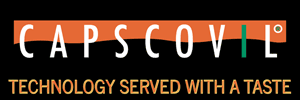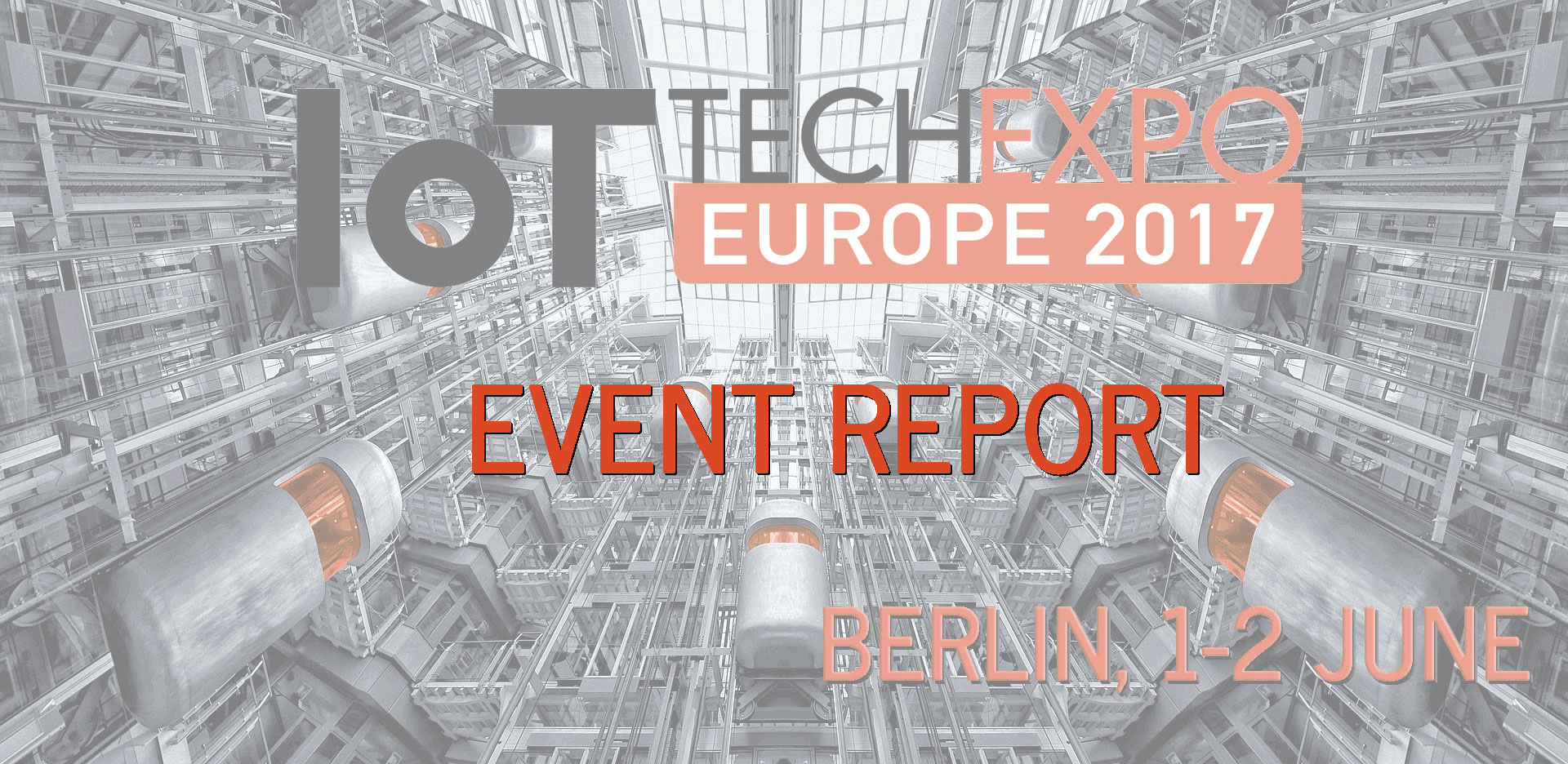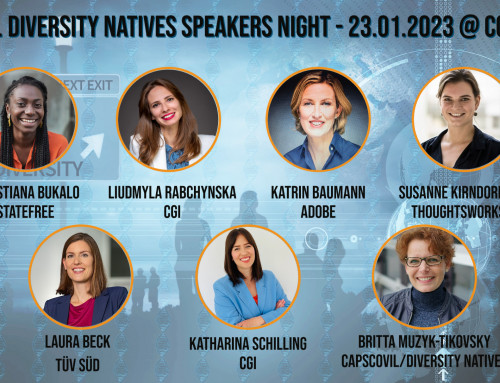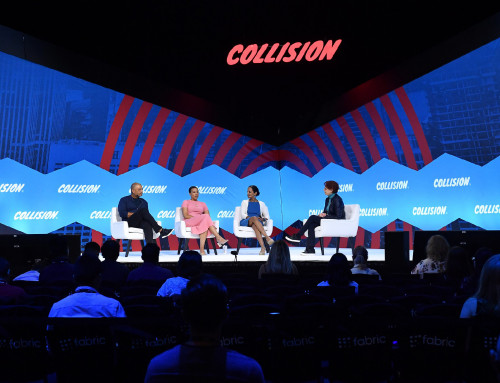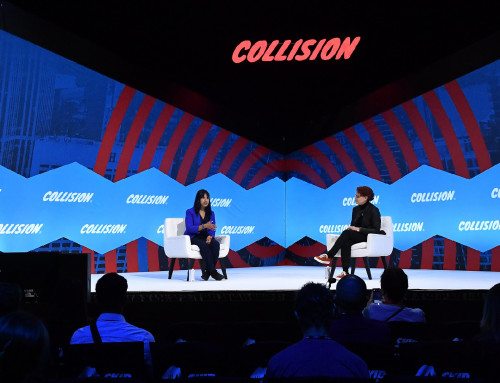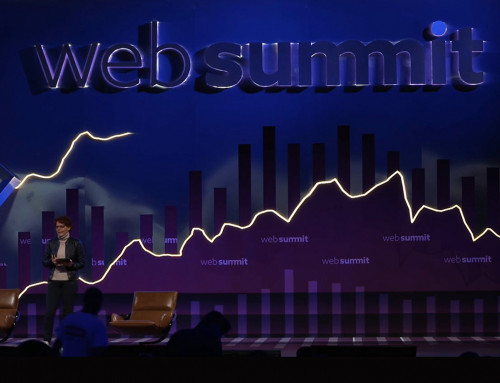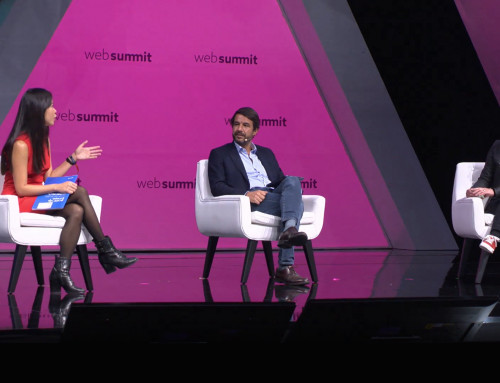by Michael Sauer
From 1st to 2nd June 2017 the IoT Tech Expo Europe, according to the organizers Europe’s largest and leading IoT Event, was held in Berlin. The renowned Hotel Estrel opened its doors to host this event and give the 4000 attendees and over 200 speakers a platform to network, exchange and build new partnerships. The exhibiting companies and their speakers came from all different industries, ranging from ICT providers like T-Systems to car manufacturers such as BMW to airlines like Turkish Airlines. To get this wide mix of stakeholders and companies somehow into order, the organizer clustered the conference into different tracks, which are outlined in the following with their most notable talks.
Developing for the IoT: This track covered new technologies for developers to build products and included platforms, frameworks, hardware and connectivity solutions. One of the main topics addressed here was creating a standards framework for IoT. Currently there is a broad variety of different standards that make it sometimes hard to integrate different IoT solutions. To summarize the discussion: there is still some way to go.
IoT Innovations & Technologies: Here, start-ups and corporates could introduce to the audience their latest innovations across the entire IoT ecosystem from gateways, security to platforms. Munich based young and very successful company tado, which develops and produces smart thermostats, gave an insight on how AI might change the way their IoT devices work and how people interact with them. As also stated by many others, voice control will change the way we interact with their devices massively and simplify it to a natural level. Additionally, future devices will not act reactive but anticipatory, by learning from a user’s need or context-aware behaviour.
Connected Industry: In this track the potential of the Industrial Internet of Things and the impact on our existing industry, its value chains, business models and workforce was addressed. Solace presented some interesting use-cases with different architectures for a seamless communication between assets all around the world to establish real-time analysis and decision making. Smart Transportation & Cities: as the title indicates, here all kind of different topics around smart cities and transportations were covered, also including issues like environmental concerns, quality of life and economic performance. I am glad, that one airline was also giving a talk in this matter, since I am always thinking there is so much way for improvement when I am at the airport. Well, some of it was covered in this session including indoor navigation solutions, passenger recognition and mobile IDs.
Data & Security: On the one hand the potential of new businesses and solutions due to huge amount of data generated by the IoT devices was addressed in this session. On the other hand, that comes with security issues. Those need to be handled properly, which was also discussed here. As stated by Claus Gruendel from G+D, the high complexity of IoT leads to big opportunities for security issues. Therefore, IoT security cannot be a retrofit and must be taken into consideration when designing your IoT system.
IoT in Enterprise: This track was the one with the most concrete use-cases. Here, a variety of large enterprises presented their different IoT applications, from asset tracking to solutions in an agricultural context. Microsoft for example presented some very interesting use-cases in the oil and gas industry, all of course backed by Azure. Those ranged from real-time production monitoring of an oil field to predictive maintenance of electric submersible pumps.
Additionally to those six tracks there were two small subconferences, one covering Blockchain for industry the other one covering AI. A particularly interesting presentation was made by Dr Rand Hindi, founder and CEO of the start-up snips.ai. In contrast to other voice assistant and bot frameworks like IBM’s Watson or Microsoft Luis, their solution is the first on-device voice platform. So, for every coder out there who didn’t want to build their personal assistant yet due to privacy concerns, get snips.ai and your Raspberry Pi and start doing magical stuff.
All in all, the conference gave some insights into IoT and what corporates and start-ups are currently doing and there were some good opportunities for networking. Sadly, most presentations were sales driven and there were no ground-breaking new solutions introduced. Most applications were well known and only few really gave new insights. Nevertheless, presentations like snip.ai’s and a basic fascination for IoT and AI made this conference worth a visit.
Michael Sauer is Business Development Director and Co-Founder of product development firm Motius . He visited the event as freelance writer for Capscovil.
